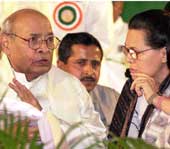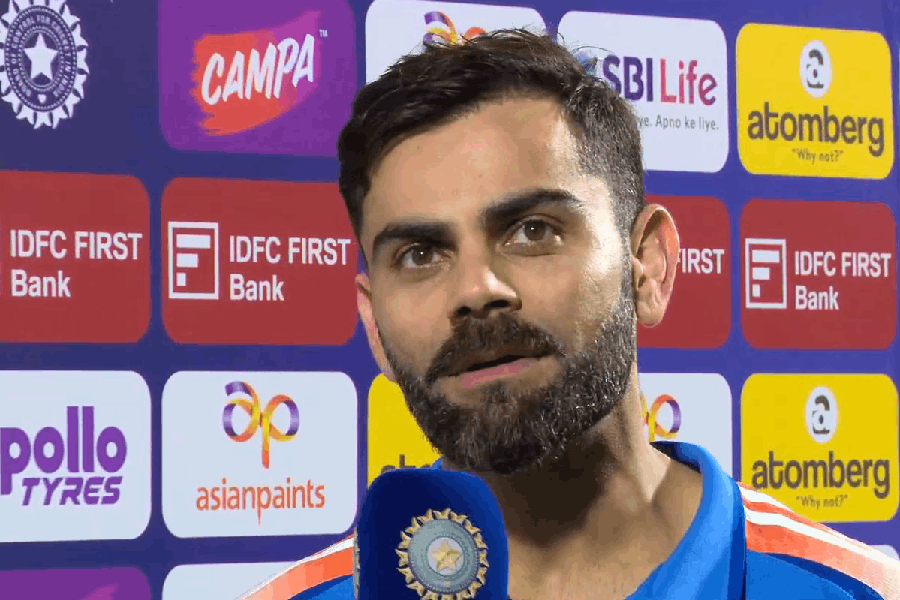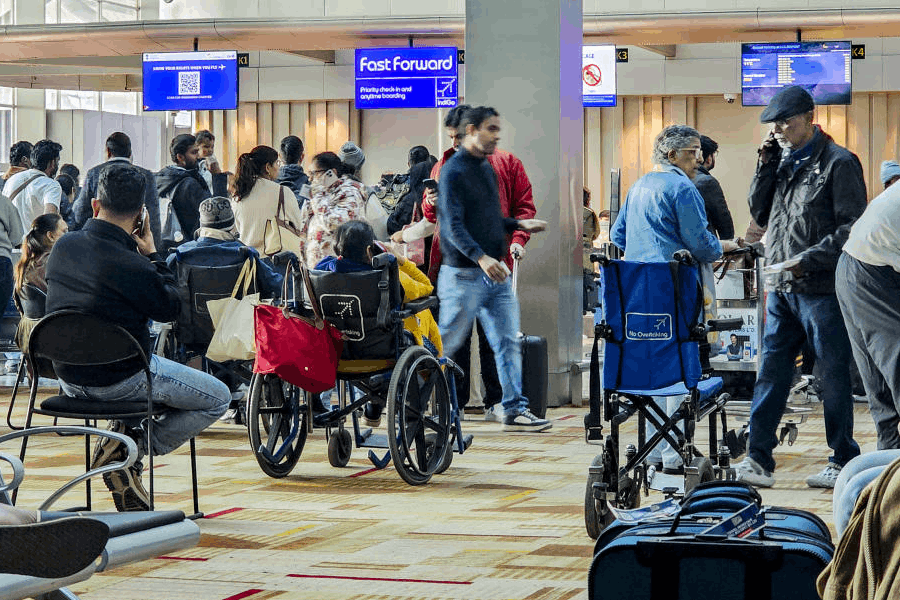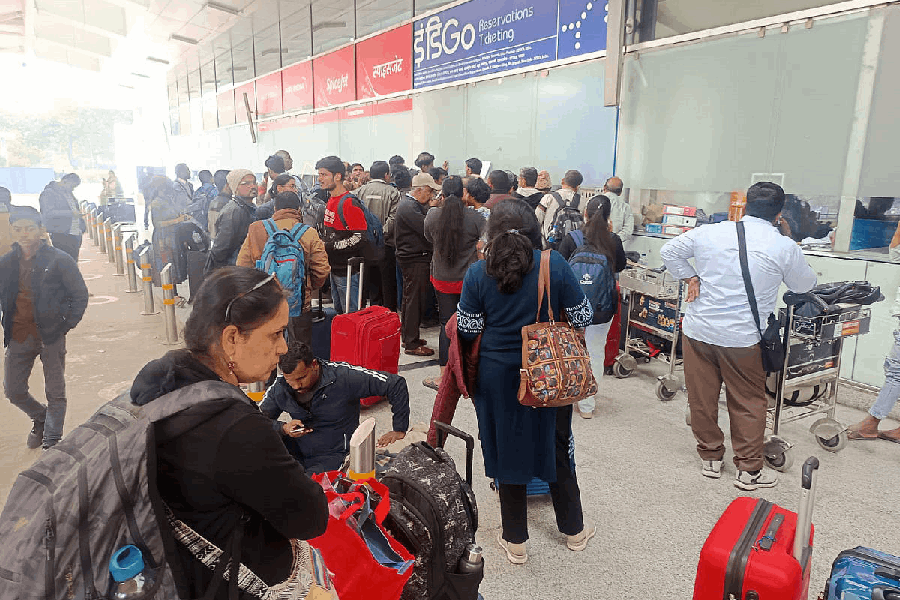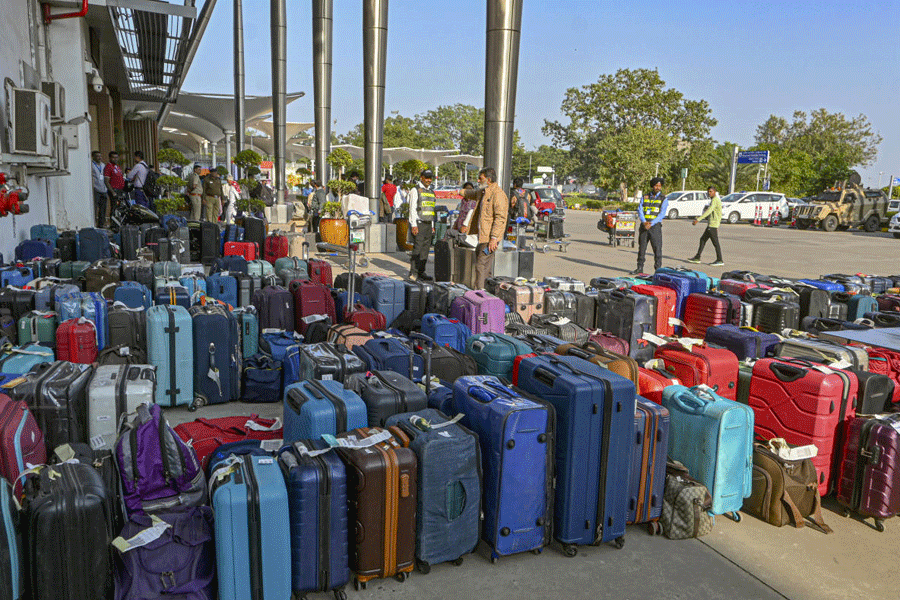|
|
| The vanishing point |
The timing and manner in which the judge, U.C. Banerjee, disclosed the interim findings of his inquiry into the burning of the train at Godhra have done grave harm to the cause of truth. Playing politics with truth can be as insidious as the subversion by lies. Unwittingly perhaps, Banerjee has ensured that truth will remain hostage to politics. The tragedy that was Godhra was incalculably compounded by what can only be described as a state-supported pogrom against minorities. Now it appears that we are determined to ensure that the aftermath of the tragedy is a farce.
What is the ?truth? at stake here? I am not in a position to dispute Banerjee?s substantive finding that the Godhra fire was an accident, and that there was no conspiracy. This account is quite plausible, though we have to wait and see how all the evidence coming in from different reports stacks up. The question of the ?truth? at stake is a rather different one. This is the idea that in matters such as Godhra, there is no truth of the matter at all. All we can hope for is different narratives. This position has become the default commonsense position of many citizens. But its ramifications are frightening. It gives the lie to any serious attempts to pin responsibility for what actually happened in Godhra and its aftermath. If there is no ?truth?, by what authority do we hold anyone responsible? The vacuum created by the absence of truth is not filled by a constructive scepticism. Rather it licenses all kinds of prejudices to fill the public space on equal footing. If we are convinced that the truth is always grey, or is relative to a narrative, or whatever other evasive phrase we want to employ, then we end up in the position that one story is as good as another. Truth is the casualty in Godhra and Gujarat, not because the facts, difficult as they might be, cannot be ascertained. Truth is a casualty because the very idea of truth has become suspicious.
We have come to this pass because the institutions that are authorized to produce the truth face a grave crisis of credibility. We were pretty confident that any inquiries or commissions appointed by the National Democratic Alliance government, or the Gujarat government, would always carry the taint of suspicion. We have also become so adept at uncovering motives that it has become impossible for any civil society organization to stamp its authority. The twists and turns of the justice system have left all of us wondering exactly what is going on. The simple truth is that credibility is at a great premium in this society. And without credibility, there is no truth.
What U.C. Banerjee did was undermine whatever credibility he might have possessed. It was an extraordinary act of political naivet? to suppose that releasing an interim report on the eve of elections in Bihar would not taint the report. After all, the man who commissioned the report, Laloo Prasad Yadav, is one of the main actors in these elections, and the chief target of the report, Nitish Kumar, is his main rival. The report was due out in March in any case, so why the unseemly haste? Why preface what is after all a departmental inquiry with long disquisitions on secularism? Why use a press conference to publicize its findings? What is the meaning of ?interim? anyway? If interim carries a connotation of uncertainty, why be so cavalier about releasing it prematurely? If truth is about how and when something is said, as much as it is about what is said, then Banerjee was setting himself up for fair criticism.
No one expected the Bharatiya Janata Party to accept the findings of the report. They have an extraordinary ideological investment in obscuring the truth. So the fact that the report generates opposition from those quarters is neither surprising nor relevant. What Banerjee?s actions did, however, was to give aid and succour to the thought that there are no impartial institutions left in society. It goes without saying that many of our citizens have such entrenched positions on Godhra that it is unlikely that any evidence will sway them. But it is also the case that a significant number of citizens were genuinely agnostic about what happened at Godhra. They were open to any of the possibilities: accident, miscreants who got out of hand, local conspiracy, premeditated international conspiracy or even at its most diabolical, a conspiracy from within the train. What Banerjee did was undermine the trust of those who were genuinely open to persuasion by evidence.
It could be argued that we should ignore the politics and timing of the report and concentrate on its substance. Let us not allow the politics to obscure the facts. In some ways, this is the only way forward. But the task is not going to be easy for the reasons mentioned above. We are living in a climate of opinion where we are perilously close to giving up on the idea of truth itself. The politics associated with the Banerjee report will only exacerbate that sentiment. Second, any truth about Godhra will be injurious to the psyches of many. Hindu society still needs to come to terms with the appalling character of what happened in Gujarat. But if Godhra turns out to have been a mere accident, the last straw many were clutching onto in order to evasively contextualize the violence in Gujarat will have disappeared. And we will be left with still more uncomfortable questions to face. If it turns out to be a conspiracy, many Muslims will be faced with an analogous dilemma. And the political fallout could still be vicious. So there is considerable investment in resisting the truth. And if our institutions are not credible, this resistance will be more difficult to breach. In such a climate, any commission ought to bend over backwards to ensure that it can carry some weight with the wavering and the undecided.
It would be utopian to expect that any regime of truth can come to establish itself in a society as deeply divided as ours. One measure of this division, and our political shortsightedness, is the fact that we still cannot create bipartisan commissions on matters of grave national importance, as Godhra undoubtedly is. Our political parties are unlikely to come together and put their weight behind a commission whose authority they would all accept. Thus on matters such as Godhra, there is little political space left between sectarian prejudices on the one hand, and a corrosive scepticism on the other. Credible commissions are one opportunity to open up that space. They are an opportunity to say that something like the truth can be objectively ascertained and impartially administered. Banerjee?s actions, perhaps unwittingly, have helped undermine whatever slender trust in institutions we possessed. His misjudgment will turn out to be grievous especially if his findings contain the truth of what actually happened. Unlike the sangh parivar, which is prone to expose us to inflated claims, Banerjee may have compromised the truth. Lies are easy to expose, but a tainted truth harder to repair. Our tragedy is not that we might not ever ascertain the facts. It is that we have given up on the idea of truth itself. This is because we no longer believe that any institution can actually produce the truth.

